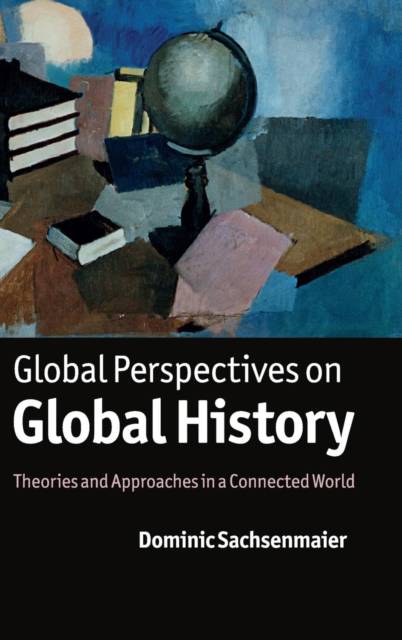
- Afhalen na 1 uur in een winkel met voorraad
- Gratis thuislevering in België vanaf € 30
- Ruim aanbod met 7 miljoen producten
- Afhalen na 1 uur in een winkel met voorraad
- Gratis thuislevering in België vanaf € 30
- Ruim aanbod met 7 miljoen producten
Zoeken
Global Perspectives on Global History
Theories and Approaches in a Connected World
Dominic Sachsenmaier
Hardcover | Engels
€ 89,45
+ 178 punten
Uitvoering
Omschrijving
In recent years, historians across the world have become increasingly interested in transnational and global approaches to the past. However, the debates surrounding this new border-crossing movement have remained limited in scope as theoretical exchanges on the tasks, responsibilities and potentials of global history have been largely confined to national or regional academic communities. In this groundbreaking book, Dominic Sachsenmaier sets out to redress this imbalance by offering a series of new perspectives on the global and local flows, sociologies of knowledge and hierarchies that are an intrinsic part of historical practice. Taking the United States, Germany and China as his main case studies, he reflects upon the character of different approaches to global history as well as their social, political and cultural contexts. He argues that this new global trend in historiography needs to be supported by a corresponding increase in transnational dialogue, cooperation and exchange.
Specificaties
Betrokkenen
- Auteur(s):
- Uitgeverij:
Inhoud
- Aantal bladzijden:
- 340
- Taal:
- Engels
Eigenschappen
- Productcode (EAN):
- 9781107001824
- Verschijningsdatum:
- 12/09/2011
- Uitvoering:
- Hardcover
- Formaat:
- Genaaid
- Afmetingen:
- 157 mm x 229 mm
- Gewicht:
- 612 g

Alleen bij Standaard Boekhandel
+ 178 punten op je klantenkaart van Standaard Boekhandel
Beoordelingen
We publiceren alleen reviews die voldoen aan de voorwaarden voor reviews. Bekijk onze voorwaarden voor reviews.











